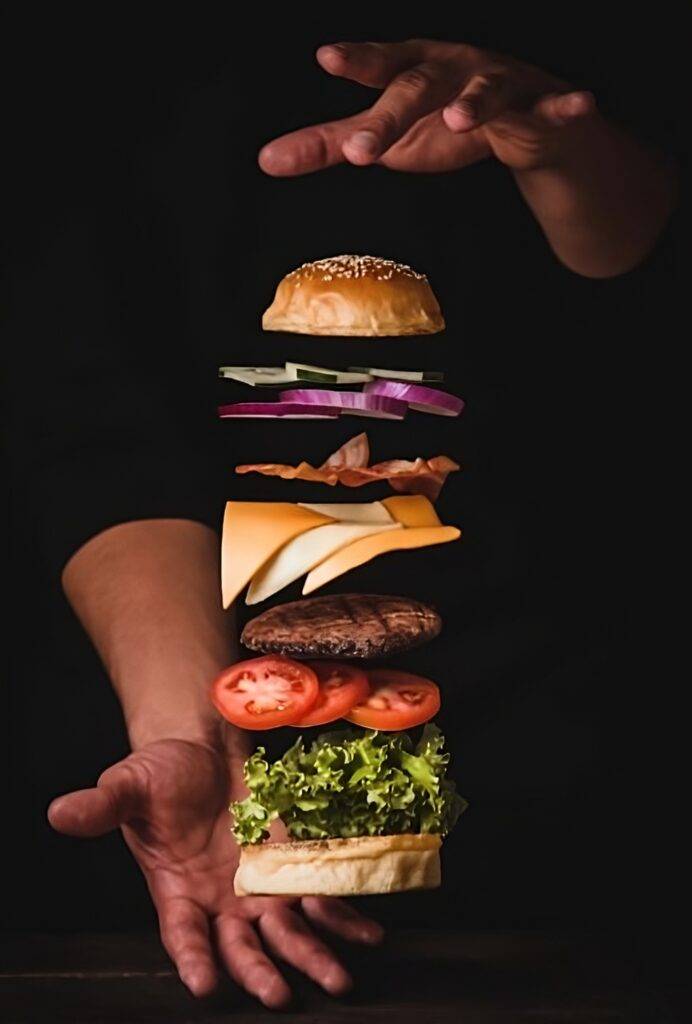As a weight loss consultant, my initial meetings with clients are always an important opportunity to establish rapport and set expectations.
One crucial lesson that I make sure to impart right from the beginning is that mistakes are an inherent part of any project or undertaking.
But the good news is that almost all mistakes can be corrected – and sometimes, a fresh set of eyes can even lead to unexpected and beneficial changes.
With this knowledge, my clients feel more empowered to take risks and embrace new challenges without the fear of failure holding them back. It’s always gratifying to see the positive effects that a simple change in perspective can have on a client’s mindset and perspective.
Millions of people around the world have tried various diets with the goal of losing weight and achieving a healthier lifestyle. Yet, the success rate of diets is notoriously low, with many failing to produce long-lasting results.
While there could be several reasons why diets fail, one critical factor is the prevalence of simple weight loss mistakes that people make while trying to maintain a diet. We are going to discuss some of the most common mistakes that people make and how they can undermine your dieting efforts.
Weight Loss Mistakes Beginners Make
With countless sources of information and advice, it’s easy to feel overwhelmed and uncertain on what’s the right approach. We are here to help you navigate this journey with success. What are the biggest weight loss mistakes?
In this article, we will delve into some of the most common weight loss mistakes that people make and we will provide tips on how to avoid them. Our goal is to help you achieve your perfect weight in a healthy and sustainable way.
Healthy Ways to Lose Weight Fast
Table of Contents
Weight Loss Tips
Setting Unrealistic Expectations
What are the most common diet mistakes?
One of the major mistakes people make when trying to lose weight is setting unrealistic goals. For example, aiming to lose a significant amount of weight within a short period of time.
This not only sets you up for disappointment, but it can also lead to unhealthy practices such as crash dieting or excessive exercise.
To avoid this pitfall:
- Set achievable goals.
- Set smaller Goals.
- Set progressive goals.
This will provide you with a better sense of accomplishment and keep you motivated throughout your journey.
Relying too heavily on the scale:

Another common weight loss mistake is focusing too much on the number on the scale. While it is important to track your progress, it is equally important to remember that the scale does not tell the whole story.
Factors such as muscle mass, water retention, and even hormonal fluctuations can impact your weight. Try measuring your progress using other methods like body measurements or progress photos.
These can provide a more accurate reflection of how your body composition is changing and can help you stay motivated.
Skipping meals or drastically cutting calories:
It is a common misconception that skipping meals or significantly reducing calorie intake will lead to faster weight loss results.
While it may be true that consuming fewer calories can contribute to weight loss, this approach can also lead to nutrient deficiencies, low energy levels, and an increased likelihood of binge eating.
Furthermore, your body may go into “starvation mode,” slowing your metabolism to conserve energy, making it harder to lose weight. Aim for a sustainable and healthy caloric deficit instead of drastic cuts, and ensure you are getting adequate nutrition from a balanced diet.
Overlooking the importance of sleep and stress management:
Losing weight is not just about diet and exercise. It is also significantly influenced by the quality of sleep and how you cope with stress.
Inadequate sleep can contribute to hormonal imbalances, causing cravings for unhealthy foods and increasing the likelihood of weight gain. Additionally, stress can stimulate the release of cortisol which is a hormone that can contribute to weight gain, particularly around the abdominal area.
Prioritize getting enough sleep every night and manage your stress by incorporating relaxation techniques such as meditation or yoga to support your weight loss efforts.
Hormonal Belly Fat and Weight Loss for Women
Neglecting strength training:

Amy Shults
Registered Dietitian Nutritionist
Bachelors of Science in Dietetics – State University of New York College at Buffalo
Many people focus solely on cardio for weight loss, overlooking the importance of strength training. While cardio is essential for burning calories and improving cardiovascular health, strength training plays a crucial role in overall body composition.
Building muscle mass not only enhances your physical appearance, but it also increases your metabolic rate, helping you burn more calories at rest.
Incorporate strength training exercises such as weight lifting or bodyweight exercises into your fitness routine to maximize your weight loss potential.
Weight loss is a challenging yet rewarding journey that requires dedication, consistency, and focus on lifelong habits instead of quick fixes.
By avoiding these common weight loss mistakes, you will set yourself up for success in achieving your goals and maintaining the results in the long run. Remember, weight loss is not a linear process and setbacks or plateaus are natural during this journey.
Stay patient, keep learning, and make the right choices to reach your desired destination for a healthier and fitter version of yourself.
Foods to Avoid When Losing Belly Fat
Are you beginning a new weight loss journey and wondering which foods to avoid when losing belly fat? Look no further.

Abdominal fat is unfortunately one of the most stubborn areas for fat accumulation in the body. Reducing this jiggly menace not only makes us look better, but also lowers our risk of developing serious health complications such as diabetes, heart disease, and certain cancers.
In this section, we will reveal some sneaky foods that may be hindering your progress and suggest healthier alternatives to help you get closer to achieving that svelte waistline you have been dreaming of.
Sugar-laden Beverages:
Your daily frappe or can of soda might taste fantastic, but these high-calorie culprits are one of the primary reasons people find it challenging to lose belly fat. Sugary drinks are packed with high fructose corn syrup which can promote fat storage, especially around the abdominal area.
Even fruit juices may contain added sugar or sneakily high calorie counts. As an alternative, try quenching your thirst with water, sugar-free teas, or sparkling water with a splash of fruit for flavor.
Trans Fats:
Often found in many processed and packaged foods such as crackers, cookies and cakes, trans fats are linked to increased inflammation, heart disease and abdominal fat gain.
Be sure to check product labels and avoid those containing partially hydrogenated oils. Choose healthier fats found in nuts, avocados, and olive oil instead.
Alcohol:
Many people find it surprising that their favorite adult beverages might be stalling their weight loss efforts. Alcoholic drinks, particularly sugary cocktails, and calorie-dense beers, not only contribute to that dreaded beer belly but also impede your body’s fat-burning abilities by slowing down your metabolism.
Cutting back on alcohol consumption will significantly benefit your waistline. If you cannot forgo a drink entirely, opt for lower-calorie options such as a glass of red wine, a light beer, or a vodka soda with a twist of lime.
Refined carbohydrates:
White bread, pasta, and rice are not doing your belly any favors. These foods have a high glycemic index, causing spikes in blood sugar levels that can lead to increased fat storage.
Instead of filling up on refined carbs, switch to whole grains such as whole wheat pasta, brown rice, quinoa, and barley for a more balanced diet that will keep you fuller for longer.
Unhealthy snacks:
Those late-night snacks like potato chips or sugary treats may provide a quick fix for cravings, but the instant gratification comes at the cost of adding more belly fat.
Instead of reaching for high-fat, high-calorie options, stock your pantry with healthier snacks such as air-popped popcorn, veggie sticks with hummus, or plain Greek yogurt with fruit.
These alternatives will help curb cravings and satisfy your hunger without sabotaging your weight loss goals.
Banishing belly fat can be challenging, but cutting these unhelpful foods from your diet is an essential step in achieving your weight loss goals.
Remember to keep an eye on portion sizes, opt for whole foods over processed, and don’t be too hard on yourself if you slip up. We are all human. By making these simple changes and committing to a healthier lifestyle, you will be well on your way to rocking that toned and trim waistline.
Is Rapid Weight Loss Unhealthy?
When it comes to dieting, it can be tempting to want the results quickly. But is rapid weight loss a healthy approach?
Before you begin any diet plan for weight loss, you should know the potential risks of rapid weight loss. Let us look at what rapid weight loss is, why it can be dangerous for your health, and what a healthy approach to losing weight looks like.
What Is Rapid Weight Loss?
Rapid weight loss is any type of diet that leads to your body dropping five pounds or more in one week. This could be from cutting calories significantly, eliminating entire food groups, or taking drastic measures such as fasting.
The goal of rapid weight loss is often to reach a desired goal quickly—but this is not an ideal approach for many reasons.
Why Is Rapid Weight Loss Unhealthy?
The main issue with rapid weight loss is that it can cause you to lose muscle mass rather than fat. Muscle tissue requires more energy (calories) than fat tissue which means that when you cut calories too drastically and too quickly, your body will burn through your muscle tissue instead of fat tissue which can lead to weakness and fatigue.
Additionally, when our bodies experience drastic changes in caloric intake, our metabolism slows down as a way of conserving energy which makes it even harder to lose weight in the long-term.
Finally, rapid weight loss diets are typically unsustainable because they are so restrictive and difficult to maintain over time.
Healthy Recipes For Weight Loss
Nutritional Deficiencies: The #1 Risk of Rapid Weight Loss
Rapid weight loss is often accompanied by nutritional deficiencies. The lack of balanced meals and snacks consumed during extreme dieting many times causes adverse results.
When the body does not receive the necessary nutrients from food, it can lead to:
- Fatigue
- Dizziness
- And even anemia.
It is important to ensure that your weight loss plan consists of nutritional foods that provide the necessary vitamins and minerals that will provide you the energy levels needed for optimal health and wellness.
Losing Weight: Getting Started | CDC
Dehydration: A Leading Risk of Rapid Weight Loss Dieting

Dehydration is a common side effect of rapid weight loss.
Dehydration can cause
- Headaches
- Nausea
- Confusion
- Increased heart rate
- Mouth dryness among other symptoms.
It is important to drink plenty of water throughout the day when on a rapid weight loss diet to help keep your body hydrated and functioning properly.
Before embarking on a rapid weight loss journey, make sure you understand the potential medical risks.
What Is a Healthy Approach to Losing Weight?
The good news is that there are healthier ways to go about losing weight and they don’t require drastic measures or extreme deprivation.
A healthy approach includes these elements:
- Setting realistic goals
- Eating nutritious foods
- Exercising regularly
- Tracking progress
- Maintaining accountability
Getting adequate sleep, drinking enough water, and finding support from family and friends if needed is a definite advantage as well.
All of these elements together create a comprehensive program for sustainable and lasting results!
Rapid weight loss has its drawbacks, but there are healthy alternatives available.
By setting realistic goals for yourself and utilizing the tips above, you can create a program tailored specifically for you that will help set you up for success in achieving your desired results over time without having to resort to extreme measures.
If you need help creating an individualized diet plan with tailored advice from medical professionals, consider consulting with doctors who specialize in nutrition and wellness today. Making mistakes in losing belly fat is very common. Don’t rush the process and you will begin to see results.
Weight loss mistakes to avoid. We provide weight loss tips, discuss rapid weight loss and foods to remove from your diet with a healthy approach.
Contact us today
Email: [email protected]
Phone: (346) 593-5619
Contact Human Resources Email:
Contact Operations Email:
Contact Authors for Her Weight Loss Email:
Customer Service Email:
Welcome to Her Weight Loss. We believe that every woman has the power to achieve their weight loss goals. Our team of experts combines years of industry experience with a passion for helping individuals lead healthier lives.
We understand that losing weight can be challenging and overwhelming which is why our expertly curated content provides valuable guidance on proper nutrition and exercise tailored for women.
At Her Weight Loss, we don’t just offer quick-fix solutions. We empower our readers with knowledge-based methods to make informed decisions about their health and well-being.
Our mission is to inspire and support women on their journey towards achieving their ideal weight by providing them with the tools they need to succeed. With trust as our foundation, we are committed to being a reliable source of expertise and authority in the ever-changing landscape of weight loss advice.